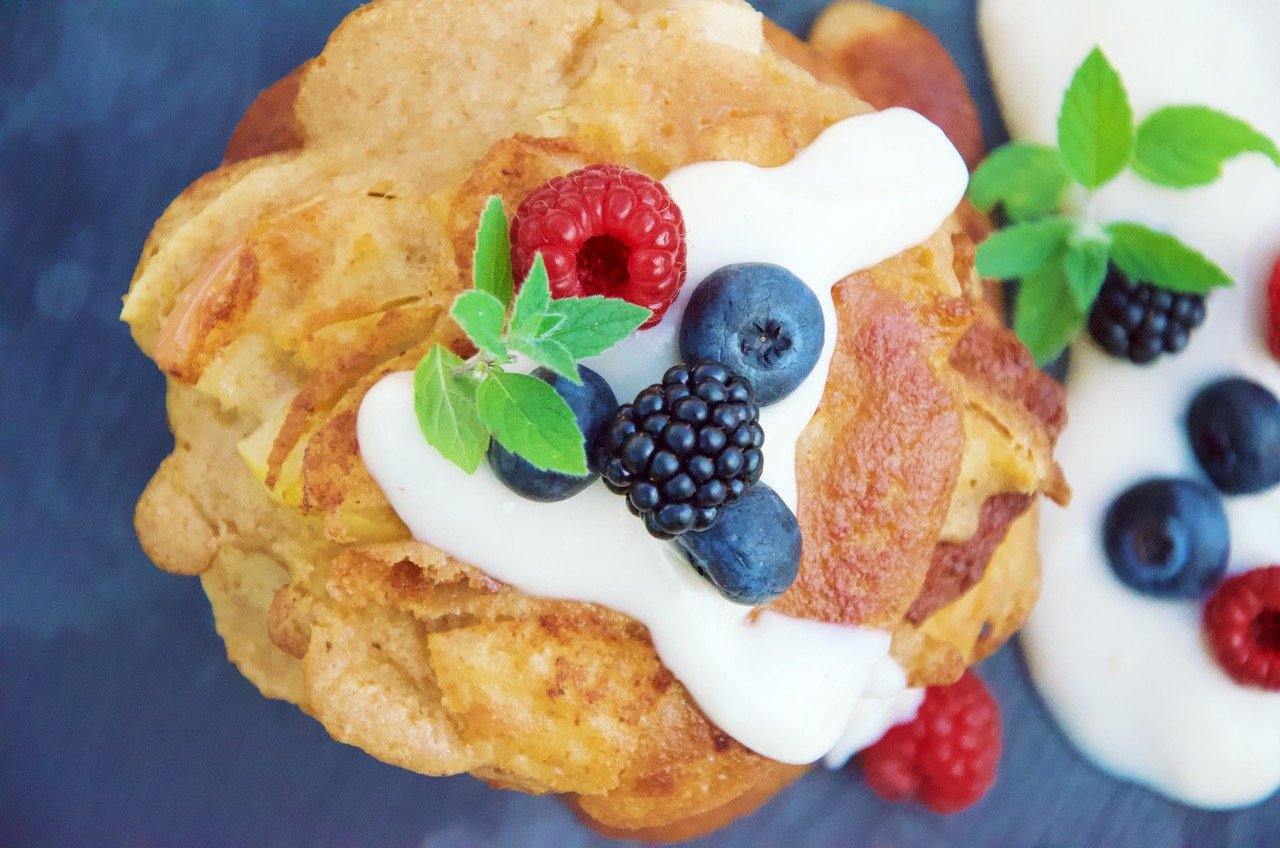Oh sugar …
Today I am pleased to be able to write about a topic that has been on my mind for years.
Added sugar in our food - in any form.
When I started to take a serious look at my diet, I began to pay particular attention to the composition of all foods. In addition to colourings, additives, preservatives and flavour enhancers, I often found sugar in the first two places. And I don't necessarily just mean in ready meals and packet soups, but in foods in which I would never have suspected sugar. For example, in spreads, juices, plant-based milk, yoghurts and bread. In other words, in foods that are declared to be unavoidably healthy. Sugar is often added as a flavour enhancer under names such as sucrose, dextrose or glucose.
Pretty clever of the sugar industry.
My dear 93-year-old great-aunt almost lost it the other day when I told her that we don't eat sugar "... The body needs sugar..." She was probably right. However, we're not actually talking about the same type of sugar. But more on that later. My great-aunt's generation grew up in a different era. It was a completely different world. The attitude towards nutrition and food was completely different. Back then, they were happy to have anything to eat at all & quick energy boosters, such as sugar, were hoarded. The health consequences of excessive sugar consumption were initially pushed to one side. But that was then, this is now. Most of us have the opportunity every day to decide what goes on the table, how processed it is, how fresh it is & how we prepare it. When it comes to sugar and other additives, it's worth taking a look at the list of ingredients on the label. If I find sugar, sugar substitutes or too many names on the label that I can barely pronounce, I put the product back. This is the only way I can create an awareness of what I am actually consuming.
As I said, I differentiate between different types of sugar. There is the industrially processed, white or brown sugar. This sugar contains no vitamins, minerals or other beneficial properties for our bodies. Instead, it is involved in weight gain, long-term damage to the organs & severe psychological and physical complaints. So we should perhaps consider choosing a valuable sweetener instead. Without remorse & consequences for our organism.
The fact that fruit varieties such as bananas, dates and mangoes contain their own natural sweetness is certainly already known. They are therefore ideal for use in sweet dishes. Eaten in small quantities, they provide the right amount of energy, vitamins and minerals. The body can easily process them and distribute them to the organs that need them. This means that sugar has no chance of making itself at home in unwanted places as a fat pad. Also be careful with fruit juices. We often drink far too much of them and also drink them undiluted. Eat an apple instead.
In addition to the sweetness of fruit, beetroot, sweet potatoes, pumpkin and carrots also contain natural sugar and are fantastic for use in cakes, pastries and chocolates.
Alternatives to granulated sugar include substitutes such as coconut blossom sugar, agave syrup, date syrup and so on. And although these are sold as healthy sugar substitutes, we should not indulge in excess here either. These alternatives have also been extracted, industrially processed & concentrated and although they still contain minerals & vitamins, they should only be used sparingly due to the high concentrated sweetness.
Hey ... but I don't want to convince anyone of my opinion. But for my part, I have decided to stay fit in old age and not have to keep running to the doctor. By the way, it would probably be difficult to run anyway... That's why I pay attention to my diet & a generally sustainable and healthy lifestyle. Now some of you are probably thinking "... Don't be an ecotante. I want to enjoy my life & not give up everything delicious...".
And I totally agree with you ... But not at the expense of my health or that of my children. Because there is another way.
Anything is possible.
Alicja



